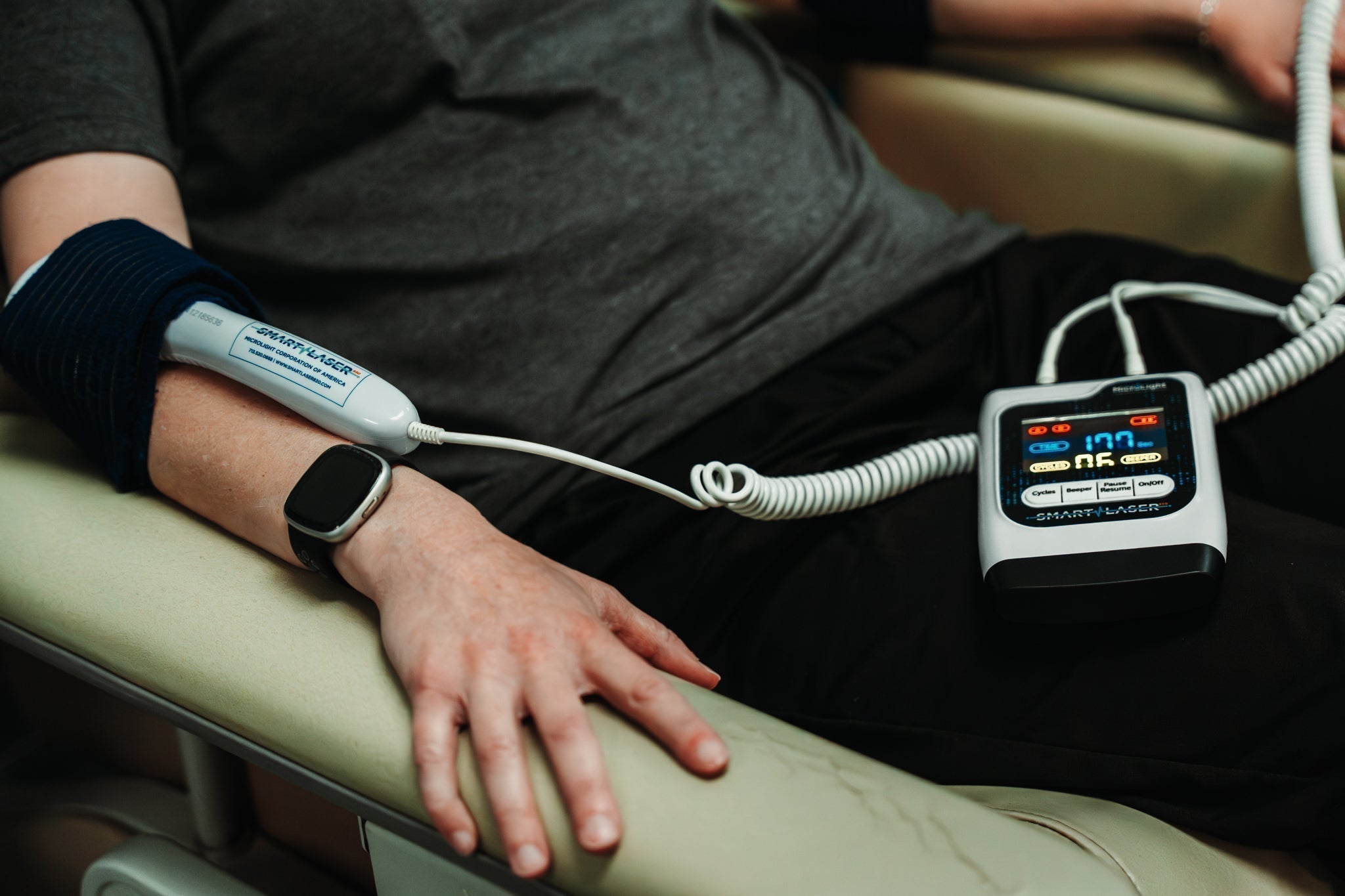10 Pieces of Advice for Practice Success
Guest Blog by: Todd E. Riddle, DC, CCSP, RKT, CSCS, ICSC
I grew up in the era of Star Wars and Sci-Fi…television shows like Mork and Mindy and Quantum Leap made 10-year-old me think that the impossible could be possible. As I’ve grown older, I’ve often thought about those old shows and how great would it be to be able to leap back in time. If I could just press a button and be transported back to be the voice of reason for that young and inexperienced new doc. Would I be able to teach him all of the hard lessons that are only learned through experience and making mistakes? Or would the much more likely scenario present itself—that novice new doc would be unwilling to listen thinking he knew the path to greatness.
They say hindsight is always 20/20 and I’ve never met a business owner who didn’t have a list a mile long of things they wish they had done differently in the beginning. In my time teaching in higher education and in the years I’ve spent teaching post-graduate courses to thousands of healthcare pros and students around the globe, I have never met one person who’s path to success wasn’t lined with failures and missteps.
So as I sit and reflect on my own near-misses and dumb mistakes along the way, I thought it would be helpful to draft a short list of the biggest lessons I’ve learned in my two decades as a business-owner:
- Start a cash practice. Establish the value of your time and knowledge. Then own it. Practitioners go to insurance because they are afraid. They are afraid that insurance is the only way to make any money in healthcare. They take crappy internships to “learn” the business. Only to find out later on that their mentor/boss didn’t actually know what THEY were doing or were behaving unethically. After all, you can always add insurance later. But it’s a one way street: you will have a hard time taking it away once you’ve made it part of your practice.
- Don’t show any favoritism; deal with everyone exactly the same. From patient care to how you charge, don’t deviate and keep it the same across the board. When you show special favor to someone or some group, you falsely reassure yourself that they see the same value in you. Mostly, you will be disappointed when they don’t reciprocate.
- Treating everyone the same means giving them all your best. Regardless of race, creed, color, status, etc. I shouldn’t need to say this, but I want to make sure this point is clear. You (hopefully) went into this profession to help people—if you lose sight of that, then you should either take a break and reconnect to your purpose or get out altogether. The world has enough crappy healthcare providers—we don’t need anyone else making us all look bad.
- Start small and focus on consistent, strategic growth. You can absolutely start a practice—yes, an entire practice out of a rented room (not building) for a few thousand dollars, all in. Grow your physical space when your practice permits it, not the other way around. This isn’t Field of Dreams. Just because you build it, doesn’t mean they will come to you. Save money from Day #1 and quickly learn the cost of each new patient you acquire. Measure EVERYTHING you can and focus on small steps forward. The #1 reason most businesses fail is running out of money and I would venture to say that this typically happens due to making big expenditures early on and not “preparing for winter.”
- Establish a practice in the area you want/desire to live. Don’t live any place just because there is a practice opportunity. If you end up leaving (hating) that practice, then you are stuck living in a place you didn’t really want to live in the first place. There is more to life than work, so make sure you’re in an environment where you can enjoy your time spent outside of the office.
- Just as you serve your patients, serve your community. Get involved. Volunteer, join a civic group, coach a team, join a church, eat at local spots, etc. You will find tremendous value and support in giving back. People do business with people, not faceless businesses. Even if you’re part of a large practice group, you should be out in the community and meeting people so that they know you by name. Develop relationships and make an impact by getting to know other small businesses in your town. Approach every interaction with how you can help serve them in some way and I promise it will pay dividends in the long-run.
- Leave your office when you don’t have to be there and go do something productive. See #5 and #6 above.
- Don’t stop learning. Just because school is over that does NOT mean you are done. Your true education is has just begun. Short on cash? Join the local library, many have incredible resources. Make sure you develop a relationship with your school librarian—many college and universities offer library resource access for their alumni. Enroll in online courses from reputable instructors and expand your knowledge beyond your clinical skills into learning as much as you can about running a business, marketing, billing, etc. Set aside a portion of your practice revenue each month to use for continuing education—it’s a tax write-off (including your travel and meal expense), so consider it a necessary business expense and just COMMIT to it. And whatever you do…don’t enroll in CE courses that you aren’t interested in just because you need the hours. Take courses that will make you a better practitioner and can teach new skills or treatment methods to enhance your patient care. PERIOD.
- If you don’t ask, the answer is always no. I started my first business by offering a ridiculously low offer to purchase fitness equipment and a sports performance training program from the hospital system I worked for. And they accepted. I literally started a business before I even had a facility to put the equipment in, but I saw an opportunity and just asked on the off-chance that they said yes. You’ll never know what is possible unless you’re willing to ask—the worst that can happen is you get turned down and end up no worst off than you currently are. Don’t be afraid to go after what you want. Just like the tattoo says: No REGERTS.
- Be gentle with yourself. Achievement is going to take time. Accept it and take care of yourself. Let’s be real for a second…burnout is an epidemic within healthcare right now. Regardless of which profession you’re a part of, if you deal with people in pain, taking care of your mental health must be a priority for you. I’ve seen too many docs through the years leave the profession out of an inability to deal with the daily stressors of practice compounded by a constant onslaught of patients who are in pain and looking for someone to blame. It doesn’t matter how great of a clinician you are or how many people you make better—there will always be cases you can’t figure out and people you can’t get out of pain. You owe it to yourself, your family and your patients to prioritize your mental health. Practice mindfulness, breathing, meditation or yoga. Find a great therapist that specializes in treating healthcare practitioners and seek out these resources for your patients.
___
Dr. Todd Riddle is a clinician, specializing in sports chiropractic and physical rehabilitation. Dr. Riddle earned his undergraduate degree in Exercise Science, with a concentration in Kinesiotherapy from the University of Toledo. Aside from being an honor student at Toledo, he was a two-sport athlete, playing quarterback and throwing the javelin for the Rockets. After graduation, Riddle worked for the University of Toledo’s Kinesiotherapy Center providing land and aquatic-based rehabilitation programs. Dr. Riddle harnessed his experience as a competitive athlete and therapist and began extensive work in the field of athletic and human performance. Dr. Riddle has coached/trained thousands of athletes, ranging from amateur to professional, including US national teams, NFL, NBA, NHL and MLB.
His passion for sports and human performance has carried over into his chiropractic career. He has served as the team doctor for several sports teams, including rugby, amateur/pro cycling and football. In 2018, Dr. Riddle was the official sports chiropractor for the historic, Nigeria women’s bobsleigh and skeleton teams at the PyeongChang Winter Olympics. He has also had the distinct pleasure of working with other Olympic athletes from all over the world.
Dr. Riddle is also an accomplished international lecturer and post-graduate educator. He has served as an assistant professor on the faculty of two chiropractic colleges and is currently the Director of Education for Southeast Sports Seminars; teaching FAKTR and Dynamic Tape. He has presented all over North America, Europe, Africa, Australia and Asia. He also has served as a reviewer of scientific articles and books chapters related to sports medicine and rehabilitation.






Share:
Share the Love Event Starts January 1st
Accelerating Recovery and Performance: Insights into Elite Athlete Care